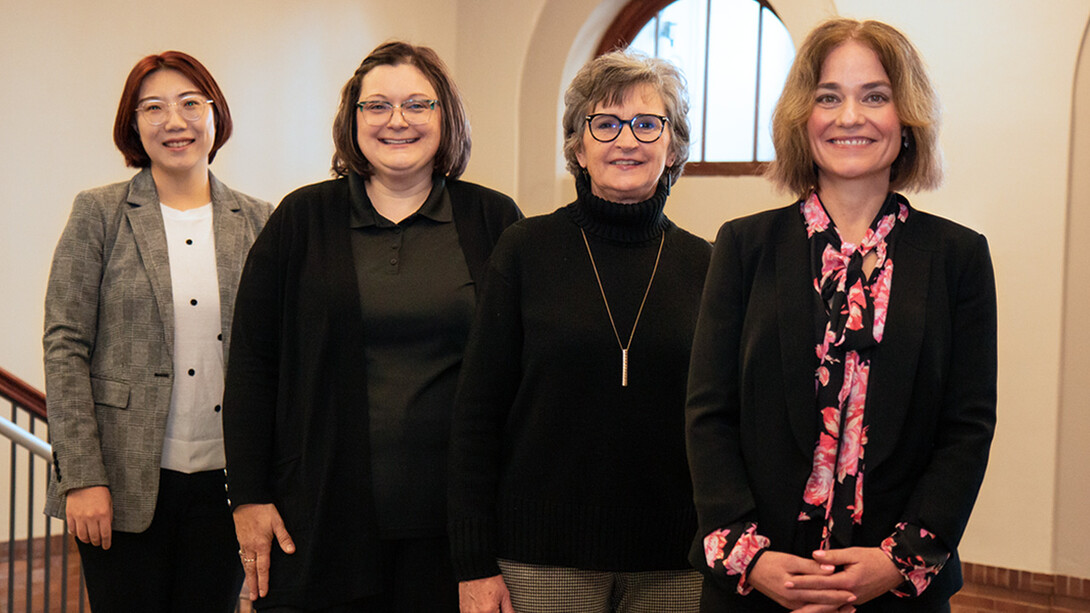
As in other states, Nebraska’s ability to deliver high-quality instruction to students served in special education depends on the availability of qualified teachers.
Unfortunately, shortages of special education teachers — both statewide and nationally — leave many students in individualized education programs at further risk for compromised educational outcomes. According to the U.S. Department of Education, 49 states and the District of Columbia reported shortages of special education teachers in 2021.
In other words, 98% of the nation’s school districts are experiencing challenges with special education teacher retention.
A team of Nebraska researchers and educators is working to develop a statewide program to develop and retain special education teachers.
Get SET Nebraska is a comprehensive mentorship and professional development program designed to support Nebraska special education teachers and school administrators serving students ages 3-21. It aims to reduce teacher-reported job stress, increase job satisfaction, improve administrative support and enhance teachers’ skills and confidence — all key to retaining special education teachers and ensuring schools can improve academic and behavioral outcomes for all students.
The team includes Amanda Witte, University of Nebraska-Lincoln Child, Youth and Family Studies research assistant professor; HyeonJin Yoon, MAP Academy research assistant professor; Pam Brezenski, project manager; and Kris Elmshaeuser, project co-director and assistant state director of the Office of Special Education.
“Special education teacher shortages is a real problem,” Witte said. “Get SET Nebraska is tailored to the needs of Nebraska special education teachers so we can keep those great teachers working in the field. It is a desperately needed program.”
The project is funded by a grant from the U.S. Department of Education–Office of Special Education and Rehabilitative Services, through a subaward from the Nebraska Department of Education.
Get SET Nebraska was developed with data gathered from a fall 2020 project led by Witte and Yoon, who surveyed 456 special education teachers from 86 school districts and 231 schools statewide. They investigated available teacher preparation programs, in-service teacher supports and the connection between those supports and job satisfaction.
Data were used to identify steps school administrators could take to reduce stress and promote greater job satisfaction. A teacher retention data system was developed, along with a comprehensive retention plan that includes a set of online training modules for administrators and a mentoring program for early career special education teachers.
The program was recently piloted in four rural Nebraska schools. Each school’s participants included a school administrator, an experienced special education teacher as a mentor and a newer teacher paired with the mentor.
Before expanding Get SET Nebraska statewide for the 2024-25 academic year, Brezenski said, a larger-scale trial will be implemented in 100 schools — 50 in test group, 50 in the control group. The expanded rollout will include the Administrative Leadership Academy’s eight online training modules — five modules designed to help administrators learn how best to support special education teachers, and three focused on professional development of newer special education teachers.
“They learn that it is a unique job that requires unique onboarding and mentoring,” Witte said. “ Special education teachers have unique needs. This program helps administrators see the unique needs of their special education teachers and the importance of protecting their time and making sure their job is what they signed up for.”
For the teachers, Brezenski said, the focus is on increasing knowledge and expertise.
“Special education is a large field; you can’t know everything,” she said. “Some special education teachers feel buried, but our program provides them with the information they need to be able to answer questions — and know who to contact for answers — so they feel like they are empowered to make some decisions.”
Brezenski notes that Get SET Nebraska focuses on teacher strengths, and enables teachers and mentors to work together to identify areas in which some additional support or experiences are needed.
“Administrators know their teachers need support and are excited about this,” she said. “One of our future participants said she wished the program had been in place earlier. I think this is fulfilling something everyone knows is necessary, but doesn’t necessarily have the time to build.”
The program’s greatest strength, Brezenski said, is that it can be tailored to meet the needs of schools and districts.
“The goal is to build something that can be used by every district,” she said. “Every teacher needs something different for their individual caseload. The ultimate goal is to ensure they feel successful, and self-efficacy is increased.”
Learn more about this project in the CYFS Research Network. This project aligns with the Nebraska U Grand Challenge of early childhood education and development.







